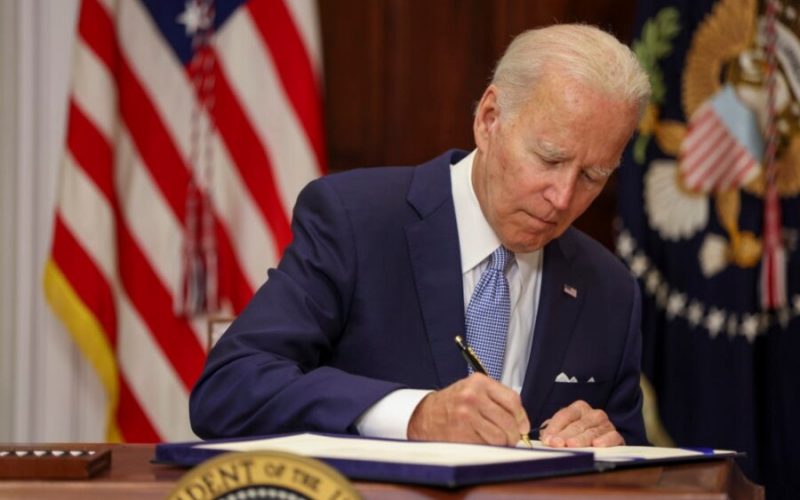Last Friday, the Biden administration delivered two significant victories to environmental activists on the far-left.
They announced plans to halt new oil and gas leasing on 13 million acres in Alaska’s federal petroleum reserve, aiming to safeguard local wildlife like caribou and polar bears. Additionally, they put a stop to the development of an access road for mining companies, which had been previously approved by the Trump administration.
Biden announced that the government is putting a halt to the construction of the “Ambler Road,” a 211-mile access route intended to grant mining companies access to leased land for mineral development.
The Sierra Club, a prominent far-left environmentalist organization, hailed the decision as a “major victory.”
Biden’s move prohibits oil and gas drilling in almost half of Alaska’s petroleum reserve. The reserve, spanning 23 million acres of public land, was initially designated as a national emergency oil supply for the US Navy, established in the early 1920s.
Despite persistently high pump prices impacting many Americans, particularly the working poor, Biden has consistently been canceling and terminating energy development leases, a trend that continued multiple times throughout 2023.
Alaska’s entire congressional delegation voiced criticism against the decisions.
“Closing off NPR-A is a huge step back for Alaska, failing to strike a balance between the need for gap oil and natural gas and legitimate environmental concerns, and steamrolling the voices of many Alaska Natives in the decision-making process,” Rep. Mary Peltola, D-Alaska, said in a joint statement issued by the three-member delegation. “The Ambler Road decision is premature, as real conversations among stakeholders in the region are ongoing. Alaska has a wealth of natural resources that can be responsibly developed to help boost domestic manufacturing and innovation — in the end, it should be up to Alaskans to decide what they want developed in their regions.”
This follows recent reports that U.S. crude oil prices have surged by 15% year-to-date. The increase is attributed to heightened demand, reduced supplies from OPEC+ production cuts, and growing political tensions in the Middle East and Eastern Europe.
The land area that Biden blocked from development, totaling 13 million acres or 20,000 square miles, is slightly smaller than the size of West Virginia.
The main energy project in the region is the Willow project owned by ConocoPhillips. The company’s two major stakeholders are the Vanguard Group and the controversial BlackRock investment group, each holding around 9% of the firm. Originally slated to open in 2029, the ConocoPhillips project will now operate without any competitors.
As per ConocoPhillips, the Willow project is expected to generate an additional $8-17 billion in federal tax revenues, create thousands of jobs, and yield 600 million barrels of oil throughout its lifespan. With the current price of a barrel of oil hovering around $87, the total project value is estimated at $52.2 billion.
John Podesta, the senior adviser to the president for international climate policy, remarked that the pair of decisions would preserve Alaska lands for future generations.
“The Biden-Harris administration has now protected more than 41 million acres of lands and waters across the country, leaving a huge mark on the history of American conservation,” Podesta said in a statement.
Elsewhere, the Biden administration assured the public that they would take all necessary measures to ensure gas prices remain low.
Alaska Natives are voicing criticism over the drilling ban in the Western Arctic, citing its impact on a substantial portion of the NPR-A land. The majority of Alaskan citizens typically receive an annual dividend check from energy proceeds, known as the “Permanent Fund Dividend.” Last year, these checks amounted to $1,312 each.
The decision is geared towards safeguarding animal species from the effects of what’s commonly referred to as “global warming” in the Arctic region. There’s a strong push among influential figures to “save” the Arctic, even though their predictions about ice melt, extinction, and rising sea levels, never come true.
To stabilize prices at the start of the Russia-Ukraine conflict, Biden sold off half of America’s “Strategic Petroleum Reserve” but has faced challenges in replenishing it due to escalating gas prices.
Share your thoughts by scrolling down to leave a comment.

